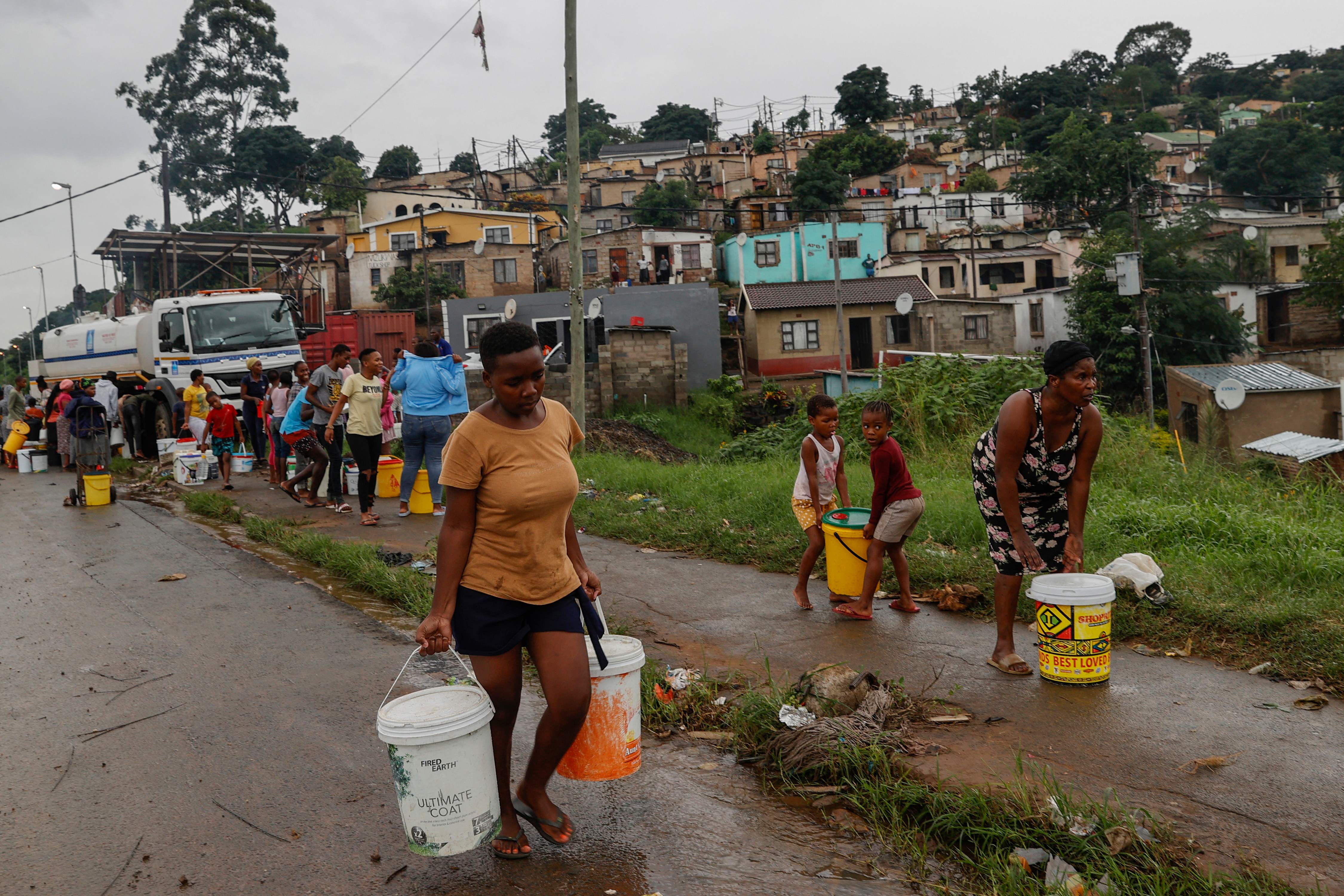Petrol tanker washes up on beach in South African floods
The tanker was washed up on the beach in front of the Durban Country Club
A petrol tanker was washed up on a beach after devastating floods hit South Africa’s KwaZulu-Natal province.
More than 280 people have died after heavy rains that washed out roads and disrupted shipping in Durban, one of Africa’s busiest ports.
The tanker was washed up on the beach in front of the Durban Country Club on Tuesday morning, according to South African news website IOL.
South African President Cyril Ramaphosa visited families who had lost loved ones in KwaZulu-Natal province, including a family with four children, after floods and mudslides ravaged their homes.
Africa’s southeastern coast is on the front line of seaborne weather systems that scientists believe global warming is making more dangerous – and predict will get far worse in decades to come.
"You’re not alone... We’ll do everything in our power to see how we can help," Ramaphosa said. "Even though your hearts are in pain, we’re here for you."

Jomba Phiri, who lives in the region’s main city, Durban, said his house had been swept away in the floods.
"I don’t know where we’re going to sleep now," he told Reuters.
South Africa’s northern neighbour Mozambique has suffered a series of devastating floods over the past decade, including one last month that killed more than 50 people.
"You’re battling one of the biggest incidents we’ve seen and we thought this only happens in other countries like Mozambique or Zimbabwe," Ramaphosa told the victims.
A report by the Intergovernmental Panel on Climate Change (IPCC) in February warned that humanity was far from ready even for the climate change that is already baked into the system by decades of fossil fuel-burning and deforestation. It urged the world to ramp up investments in adaptation.
"None of this is surprising but it’s absolutely devastating. Can you imagine the cost to people’s lives? The roads, the ports. ... It’s massive," Melissa Fourie, a commissioner on Ramaphosa’s Presidential Climate Commission and head of the Centre for Environmental Rights, told Reuters.
"In South Africa, we’re still talking about the transition from fossil fuels as if it were optional. We have to stop (burning them) and have to start preparing for the climate change that we already have."
Join our commenting forum
Join thought-provoking conversations, follow other Independent readers and see their replies
0Comments